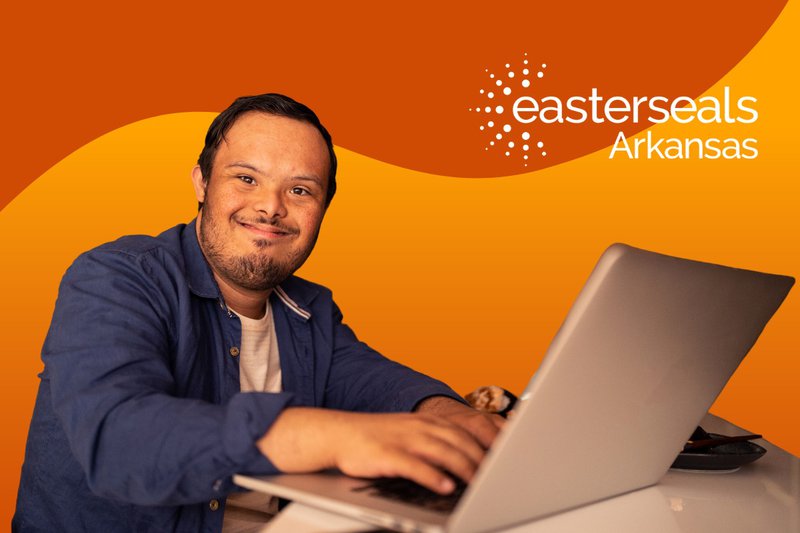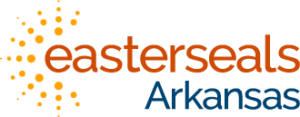
Can hiring people with disabilities or diverse backgrounds make your team stronger? Yes—and here’s why. If you’re a parent, caregiver, or advocate for someone with a disability, you want fair chances and a better future. Inclusive hiring practices aren’t just about buzzwords. They create access, build communities, and offer more ways for people like your loved ones to succeed. Still unsure if it’s worth it?
Key Takeaways:
- Inclusive hiring reduces bias and increases access for people from underrepresented groups, including disabled individuals and those with criminal records.
- DEI in hiring involves diversity (different backgrounds), equity (fair support), and inclusion (a welcoming culture).
- Use blind screening to hide names, schools, and gender; pair it with structured scoring for fairness.
- Post jobs on platforms created for marginalized communities (e.g., HBCU Connect, Pink Jobs, Techqueria).
- Structured, skill-based interviews with diverse panels help reduce bias.
- Write job descriptions that are clear, focus on skills, and avoid gendered or exclusive language.
- Provide accessible hiring tools and accommodations at every step.
- Contextual hiring and EEOC-aligned practices offer support for candidates with criminal records.
- Track offer rates, retention by group, and pay gaps to guide improvements.
- Use tools like Greenhouse, SHRM guides, and templates to support consistent practices.

Building a Better Future with Inclusive Hiring Practices
Creating a workplace that reflects the richness and diversity of the world around us starts with how companies and businesses. Inclusive hiring practices are not just a trend—they are a commitment to fairness, opportunity, and long-term success. By actively removing barriers and rethinking the hiring process, organizations can attract talent from all backgrounds, including individuals with disabilities, those with criminal records, and people who have been historically underrepresented in the workforce.
At Easterseals Arkansas, inclusive hiring is more than a principle—it’s a practice embedded into the heart of the organization. Through programs and services tailored to adults with disabilities, Easterseals Arkansas helps employers and job seekers connect in meaningful, equitable ways. And with the right tools and mindset, any organization can implement inclusive hiring strategies that improve outcomes for everyone involved.
Inclusive Hiring Practices Begin with Equity and Opportunity
Inclusive hiring means evaluating candidates based on their skills and potential—not assumptions or stereotypes. This approach opens doors for qualified individuals who might otherwise be overlooked. According to SHRM, 97% of HR professionals agree that employees with disabilities perform as well or better than their peers. The same is true for individuals with criminal records—many of whom prove to be loyal and hardworking.
By embracing inclusive hiring, companies tap into a broader talent pool, reduce turnover, and build teams that reflect the communities they serve. In a tight labor market, this can be a competitive advantage.
Diversity, Equity, and Inclusion Work Together in Hiring
To fully understand inclusive hiring, it’s essential to grasp the principles of diversity, equity, and inclusion (DEI). First, diversity encourages the inclusion of people with different backgrounds and perspectives. Next, equity ensures that support is tailored to individual needs. Finally, inclusion creates a culture where everyone feels safe, respected, and valued.
For example, hiring a deaf employee may require captioning during interviews or offering questions in writing. Equity ensures those supports are in place without requiring the candidate to ask. Inclusion ensures they feel welcomed, not singled out.
A Checklist Keeps Inclusive Hiring on Track
One of the simplest ways to promote inclusive hiring practices is by using a checklist. This tool ensures that every step of the hiring process—from posting a job to making an offer—aligns with your inclusion goals. To begin with, checklists prompt your team to:
- Post jobs on boards that reach diverse applicants
- Furthermore, remove biased language from job descriptions
- Additionally, offer accessible application formats
- Lastly, use structured interview guides
Tools like those from Greenhouse and AIHR break down inclusive hiring into manageable steps, helping teams reduce bias and create fairer outcomes.
Job Descriptions Set the Tone for Inclusivity
In creating truly inclusive hiring practices, words matter. Job listings that use gendered or exclusionary language often deter qualified applicants. Terms like "rockstar" or "ninja" may sound fun, but can alienate candidates. Instead, use plain, welcoming language focused on skills.
For instance, replace "You must be a self-starter with thick skin" with "You will support a fast-paced team." This not only sounds more inclusive—it encourages a wider range of applicants to see themselves in the role.
Additionally, avoid unnecessary requirements. If a college degree isn't essential, don't list it. Instead, describe specific tasks the person will perform. This shift can open the door for candidates with nontraditional paths.
Resume Screening Should Be Fair and Focused
Bias often enters hiring during resume reviews. To minimize this, consider blind screening, which hides names, schools, and other identifiers. This keeps the focus on skills and results rather than background.
AI screening tools can help—but only when they’re trained on diverse data and reviewed by humans. Without supervision, AI may replicate past biases. Pairing automation with human insight ensures a more balanced process.
Standardized scoring systems also help. When every applicant is rated on the same set of skills, it’s easier to compare fairly.
Reaching Diverse Talent Requires Broader Sourcing
Inclusive hiring practices mean meeting candidates where they are. That means going beyond mainstream job boards. Consider posting on platforms like:
- Employing Abilities @Work for disabled candidates
- Pink Jobs for LGBTQ+ professionals
- HBCU Connect for graduates of historically Black colleges
- Techqueria for Latinx tech workers
Additionally, partnerships with local organizations—like reentry programs, disability support centers, or refugee services—can help connect you with job seekers who are often overlooked.
Inclusive Referrals Strengthen Your Hiring Network
Referral programs are powerful, but they often reinforce existing homogeneity. To build a more diverse team, it’s essential to encourage employees to refer candidates who bring different perspectives. Furthermore, offering bonuses for referrals from underrepresented groups can significantly boost diversity. Additionally, leveraging affinity groups helps connect with new communities.
Moreover, it’s crucial to track which referral sources bring in diverse hires—this allows you to identify successful channels and invest in them moving forward.
Structured Interviews Create Consistent Candidate Experiences
Interviews should be fair, consistent, and focused on job-related skills. To implement inclusive hiring practices during the interview process:
- Use structured interviews with the same questions for every candidate
- Create scoring rubrics before interviews begin
- Train interviewers on bias and respectful communication
Panel interviews with a mix of backgrounds increase fairness. Writing down feedback individually before group discussions ensures everyone’s input is valued.
Mock interviews and interviewer training can also help teams become more inclusive in their approach.
Accessibility Is Essential for Candidates with Disabilities
Accessibility begins long before the interview. Career pages should be screen-reader compatible, with clear fonts and alt text. Additionally, each job posting should include a contact for requesting accommodations.
Furthermore, during interviews, offering flexibility is key. For example, some candidates may prefer written questions or need assistive technology. Therefore, ask what helps them succeed—and be prepared to provide it.
In addition, using tools like Zoom with captions, screen-reader-friendly platforms, and accessible application forms can make the entire process more inclusive.
Contextual and Inclusive Hiring Practices Support Candidates with Criminal Records
Inclusive hiring also means giving a fair chance to candidates with past convictions. Contextual hiring looks at the full picture—not just the offense. Review:
- The nature of the offense
- How much time has passed
- Steps the person has taken since
These individuals often bring unique strengths and a strong desire to succeed. Support from reentry programs can also improve retention and reduce risk.
Onboarding Should Be Inclusive from Day One
An inclusive onboarding process sets the tone for success. Make sure:
- Equipment and access are ready before day one
- New hires are introduced clearly and respectfully
- Mentors or peer buddies are available
Use plain language, offer training in multiple formats, and check in regularly. Feedback loops help uncover issues early and keep new hires engaged.
Data Drives Continuous Improvement in Inclusive Hiring
Without data, it’s hard to know what’s working. Track:
- Applicants by demographic group
- Interview-to-offer ratios
- First-year retention rates
- Pay equity by role
If certain groups apply but rarely get offers, it’s time to review your process. Use data to spot patterns, guide improvements, and hold your team accountable.
Tools and Templates Make Implementation Easier
Inclusive hiring doesn’t have to be complicated. Tools like Greenhouse’s inclusive hiring templates and SHRM’s DEI guides offer step-by-step help.
Templates for job posts, interview questions, and scorecards ensure fairness and consistency. These tools help even small teams build better hiring practices from the start.
Meanwhile, organizations like Easterseals Arkansas offer programs that support inclusive employment from both sides—helping job seekers find meaningful work and guiding employers in building welcoming workplaces.
Connect With Easterseals Arkansas Today
Inclusive Hiring Begins With Inclusive Support
If you're ready to build a more inclusive workplace, Easterseals Arkansas can help. Easterseals services support job seekers with disabilities and guide employers in creating equitable hiring practices that work. Whether you need help adapting your workplace or want to connect with qualified candidates, Easterseals Arkansas is ready to assist.
Contact Easterseals today to take the next step toward truly inclusive hiring.
Inclusive hiring isn’t just the right thing to do—it’s a smart strategy for building stronger, more resilient teams. By focusing on skills, offering support, and removing unnecessary barriers, employers can tap into a deep well of talent that’s often left out. And with the help of partners like Easterseals Arkansas, it’s easier than ever to create a workforce where everyone truly belongs.
